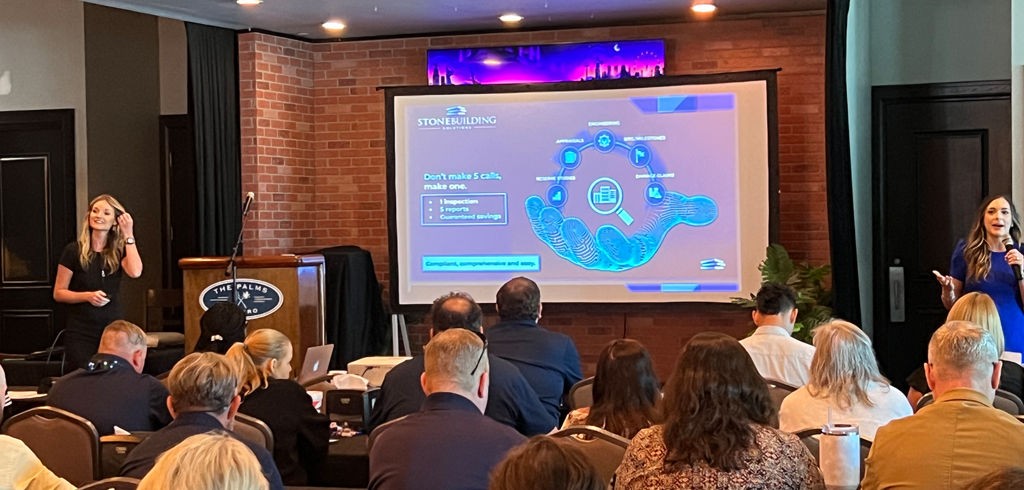THE Budget Season Webinar: Key Takeaways

Stone Building Solutions’ recent webinar, “THE Budget Season Webinar,” offered insights into the new laws affecting community budgets and the importance of maintaining structural integrity reserves (SIRS).
If you missed the live session, don’t worry; this post will recap the key points discussed during the webinar and offer guidance on how to apply this knowledge to your community.
The Changing Landscape of Community Budgets
New Laws and Their Impact on Budgeting
The landscape of community budgeting is undergoing significant changes, driven by new laws that emphasize transparency and accountability. These regulations are about maintaining financial health and ensuring that communities are structurally sound and adequately prepared for the future.
Every association, whether a condominium, homeowner association, or cooperative, must adopt an annual budget in compliance with the new laws. The budget must be adopted at least 14 days before the start of the fiscal year. It is advisable to adopt it even earlier to allow for proper planning.
One critical aspect discussed was the necessity of including full funding for reserves in the budget. Associations can no longer waive the funding for structural integrity reserves (SIRS) after December 31, 2024. Proactive financial planning is required to avoid special assessments and ensure the long-term sustainability of the community.
Structural Integrity Reserve Studies (SIRS)
Structural Integrity Reserve Studies (SIRS) are now a mandatory part of the budgeting process for many communities, particularly those with buildings over three stories. The SIRS must be completed by December 31, 2024, and the results must be fully funded by 2026.
SIRS cannot be waived. Once the study is conducted, the association must allocate the necessary funds to address the identified structural components. These components include roofs, fireproofing, painting, plumbing, electrical systems, windows, and any elements over $110,000 that impact the building’s structural integrity.
While traditional reserves could be partially funded or waived by a membership vote, SIRS require full funding. This means that once the SIRS is completed, the association must present a budget that includes full funding for these reserves. This budget must also be adopted by the board and presented to the membership.
Navigating the New Budgeting Requirements
Understanding and Implementing SIRS
Implementing SIRS involves fulfilling a legal requirement and protecting the safety and property values of your community. A properly conducted SIRS will assess all critical components of a building and determine the necessary funding to maintain them over time. This includes identifying the current condition of components and projecting their future maintenance needs.
A key takeaway from the webinar was the importance of working with a qualified reserve specialist to conduct your SIRS. At Stone Building Solutions, we have a team of engineers and reserve specialists who collaborate to provide the most accurate and comprehensive assessments. Our approach ensures that your community is compliant with the new laws and prepared to address any structural issues that may arise.
The Role of Transparency in Community Management
Transparency is at the heart of the new budgeting laws. The purpose of these regulations is not to punish communities but to ensure that all stakeholders are fully informed about the financial and structural health of their buildings. This transparency extends to how budgets are prepared, how funds are allocated, and how decisions are made.
Board members must be clear and honest with their members about the community’s financial situation. This includes explaining the implications of fully funding reserves, the potential for special assessments, and the long-term benefits of maintaining a well-funded reserve account.
Key Moments from the Webinar
Budget Requirements and Deadlines
One of the most critical discussions during the webinar was the timeline for implementing the new budget requirements. The key dates include:
- December 31, 2024: Completion of the Structural Integrity Reserve Study.
- 2025: Inclusion of the SIRS in the budget and full funding of the reserves.
- 2026: The deadline for having fully funded SIRS.
The Consequences of Non-Compliance
Associations that fail to adopt and fund their reserves appropriately could face legal action from their members. Moreover, non-compliance could lead to issues with insurance coverage, as insurers are becoming increasingly strict about the condition and maintenance of insured properties.
Corrective maintenance is typically 30 times more expensive than preventive maintenance. Associations that delay necessary maintenance and reserve funding may find themselves facing significant financial burdens down the line.
Moving Forward: Preparing Your Community for the Future
To ensure your community is prepared for the upcoming changes, we recommend taking the following steps:
- Conduct a Structural Integrity Reserve Study: If you haven’t already, schedule your SIRS with a qualified reserve specialist.
- Review and Update Your Budget: Ensure that your budget includes full funding for all reserves, including SIRS. Work with your reserve specialist to determine the appropriate funding levels.
- Communicate with Your Members: Transparency is key. Keep your members informed about the budgeting process, the reasons for reserve funding, and the potential consequences of non-compliance.
- Plan for Future Maintenance: Consider the long-term needs of your community and plan for preventive maintenance. This will help avoid costly emergency repairs and ensure the ongoing health of your buildings.
Thank you to all who attended the webinar, and we look forward to continuing to provide you with the resources and support you need to succeed. Stay tuned for more educational content and upcoming webinars from Stone Building Solutions.
